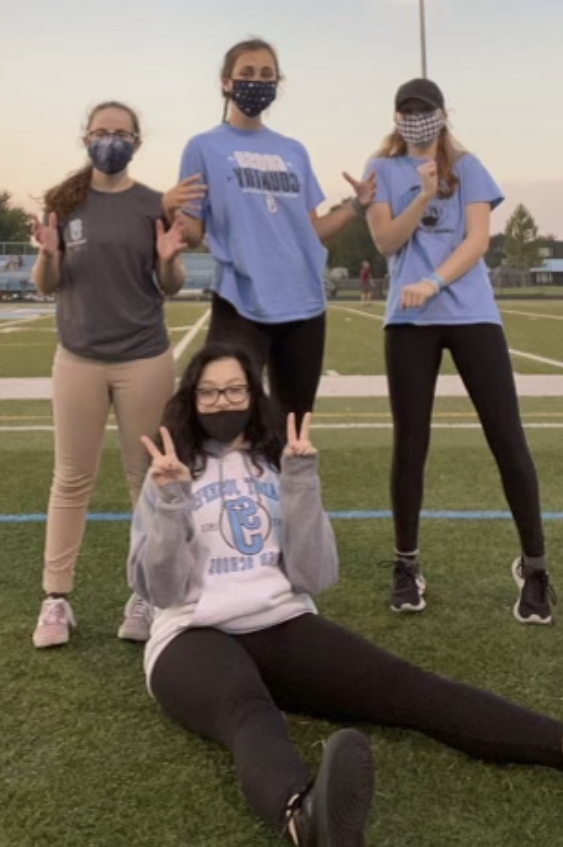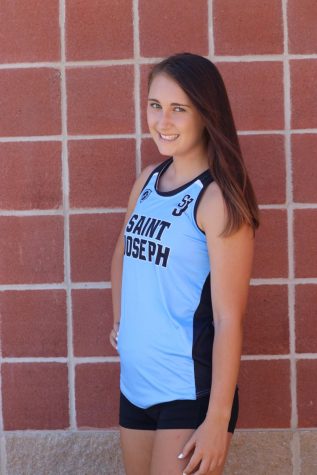Athletic Training Under Covid
Our student athletic trainers
October 20, 2020
Students interested in studying medicine have taken up the role of assisting Saint Joe’s athletic trainer, Eric Kastrup, also assist in keeping the school athletics run smoothly during the Covid-19 pandemic. The already demanding job in its nature has only become more particular due to the risk of the virus. To give student athletes a clearer understanding, a student assistant trainer was interviewed about their new and former responsibilities and how those responsibilities play a role in athletes’ physical health.
The many basic precautions the assistant trainers follow are social distancing, mask wearing, and sanitizing all materials and equipment used, as any medical professionals are always expected to do. Though many new procedures are time-consuming, each athlete who approaches the trainer with physical health concerns, Eric Kastrup, has all necessary time with him and his assistants. At this time, assistants are only able to assist with wrapping athletes, making ice bags for icing sore muscles, and cleaning minor cuts when it comes to minutia injuries, however it is imperative that athletes and coaches understand that the assistant training staff cannot assist with serious injuries. Despite this restriction, assistant trainers can and have been encouraged with the injured athlete’s permission to observe either the trainer or a doctor in those circumstances to get experience from professionals.
The most common cases that athletes approach the trainer and his assistants for involve muscle cramping.
“Athletes can prevent cramping by drinking a lot of water. Overuse injuries can be prevented by daily stretching and foam rolling,” explains assistant trainer, Amelia Kempf. All athletes who are concerned about any kind of physical pain, even muscle cramping are strongly encouraged to speak with Saint Joe’s athletic trainer, however there are precautionary measures that every athlete should take to ensure they are taking care of their bodies correctly in correspondence to the amount of physical activity they do on a daily basis.
To conclude the information given, the health of an athlete ultimately relies on the responsibility he or she has of taking care of his or her own body. Whether athletes choose to take the precautionary steps to avoid injury Amelia Kempf listed or meet with the trainer for examination, their performance as an athlete, especially during Covid-19 heavily relies on how they take responsibility for his or her own health.



